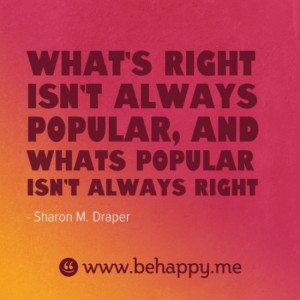“You become what you disrupt.”
The Dave McClure / 500 Startups “#UNSEXY CONFERENCE” is breaking buzz sound barriers today. Many tweeps are retweeting a meme quipped during one of today’s sessions by Jesse Robbins, CEO of Opscode / O’Reilly Radar contributor / and Co-Chair of the Velocity Conference. The quote? “You Become What You Disrupt.”
Jesse Robbins originally advanced this theory in 2007. Back then, he used Skype to illustrate his point. Alas, the glory days of Skype are long over. Skype has had its share of problems and it only gets worse (it lacks context, it’s de facto illegal in many countries, and overwrought with bugs, crashes, patches, and fixes). But back then, Jesse upheld Skype as a shining star example and declared, “you become what you disrupt.”
 As kindly as we can put it, that’s a load of bullocks. Then and now.
As kindly as we can put it, that’s a load of bullocks. Then and now.
Disruption is temporal. You don’t become what you disrupt. You become what you are able to scale and sustain. Disruption by no means equals sustainable success. You may successfully disrupt but fail to grow your idea. You may successful disrupt but fail to market it successfully. Disruption creates an opportunity to become something else *OR* flame out quickly. You are creating a space for evolution. And unless your company is prepared, poised and perfectly positioned for EVOLUTION — pursuing unmitigated disruption and revolution will merely accelerate your path to failure. Laurence Capron’s recent research proves what we already know instinctively: business survival depends on differentiated products and services, multifaceted growth strategies, and management leadership capabilities.
A few poignant stories:
- SQUARE: It’s undeniable that mobile payment firm Square is disruptive. And the monster deal with Starbucks could make Square’s app mainstream. But a string of copycats followed by mega-technology financial institutions, giant telecoms, and national retailers are all claiming their stake. VISA even made an investment in Square last Spring. Still, it’s a free for all. Who is BEST POISED to evolve the mobile payments market and achieve sustainable growth? The changes required for mobile payment market evolution go WELL beyond software and hardware.
- BLACKBERRY: Blackberry was once the smartest, hippest phone; a disruptive innovator. Intense competition coupled with executive indecision. Outages and service failures. A combative, crumbling, career-limiting culture where employees posted public letters of discontent. BlackBerry has lost the war for “share of heart” among customers and employees.
- NAPSTER: Napster, once revered as a pioneering peer-to-peer file sharing Internet service, failed. Why? Greed. Failure to deliver code. Failure to cultivate a culture of structured collaboration among its hyper-competitive junior engineering team. Failure to deliver a sound billing system. Litigation pressure because Napster openly supported unethical theft of intellectual property. Nail after nail in Napster’s coffin.
Do you become what you disrupt? No. And you don’t always become what you believe (sorry, Oprah). You become what you SUSTAIN. “Innovation” fails without adoption, diffusion, adaptation, and evolution. Cumulative changes and actions add up and breed better businesses. Indeed this is why “First Mover Advantage” is a fallacy.
Interestingly enough, new Disruptive Innovation economics research validates our working hypothesis. Companies that EVOLVE and REFINE an innovation tend to achieve greater stock value gains than the original disruptor: http://bit.ly/QNhRWM.
Surprised? Don’t be. It’s amazing how many companies forget the basics.
Editor’s Post-Script: Another common riff from today’s conference: “With SMB if you can prove ROI, you’ll gain fans.” ROI? Really? Smart entrepreneurs focus on creating sustainable value, not ROI. Delivering value drives growth. But that’s another blog post.

No Comments to “Do You Become What You Disrupt?”